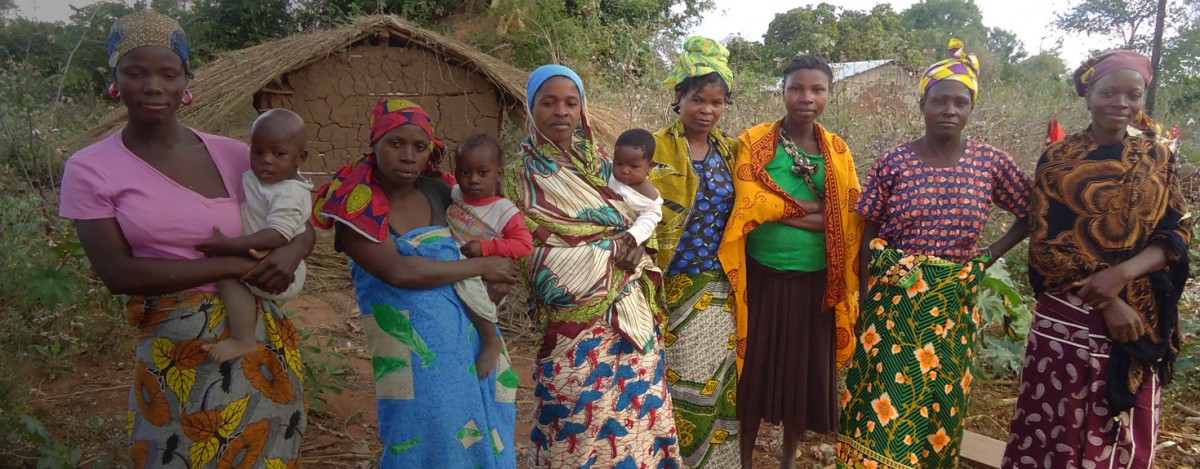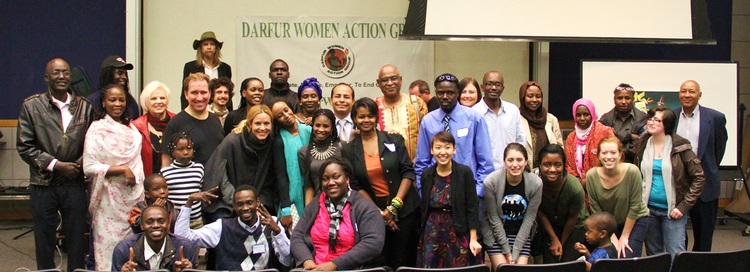Throughout this past year, the women of Darfur have suffered a continuous onslaught of rape, assault and other forms of abuse. The sad truth is that after years of ongoing tragedy, the people of Sudan are still venerable to total impunity and a lack of accountability within the judicial system. While the following headlines can only scrape the surface of the events the people of Darfur have seen this year, they are a snapshot portraying some of the things women have faced.
During these 16 Days of Activism on Violence Against Women let us take a little time to review the year our sisters in Sudan have faced and dig in deeper to see that next year will, at the very least, see less horrific headlines.
In Solidarity!
Woman raped east of Zalingei
January 12, 2012… for treatment. The source complained that displaced women living in insecure camps regularly suffer from repeated attacks when … to stop the violence and rape of already vulnerable women. (armed men, rape, zalingei) … Full story
Nine women raped by Abu Tira forces
February 9, 2012… (rape, southern refugees, women) … Full story
Evening news 10 February
February 10, 2012… 9 of the rapewomen in Alleit Jarallenby by elements of the forces and supported local … 425 (9 of the rape women in Alleit Jarallenby by elements of the forces and supported local … Full story
Woman raped in front of son in South Darfur
March 7, 2012… (appeals, camps, darfur, international women’s day, rape) … Full story
Two women killed in armed robbery
March 21, 2012… (armed, killed, robbery, women) … Full story
Woman stoned to death for trying to protect daughter
March 25, 2012… (gunmen, rape, women) … Full story
Two women from Armenkol camp raped by militia
April 8, 2012 Sirba, Western Darfur … Full story
Women from camp Bear Dagig raped by gunmen
April 10, 2012 Sirba, Western Darfur … Full story
Women call for end to systematic rape in Darfur
April 16, 2012 (darfur, systematic rape, women) … Full story
8 displaced women raped in South Darfur, eastern Chad camps
April 19, 2012… (Dereig, eastern Chad, rape, women) … Full story
Three militants rape woman in El Geneina
May 29, 2012… El Geneina (El Geneina, gunmen, rape) … Full story
Two displaced women raped by armed militiamen outside Kassab camp
June 22, 2012… 2012-06-22 22:31 Two displaced women from Kassab camp, near Kutum in North Darfur, were raped on Wednesday by … from the camp told Radio Dabanga that three IDP women came out of the camp on Wednesday to fetch firewood. They were then … Full story
Three women raped close to IDP camp Kindibe, West Darfur
July 1, 2012… Sun, 2012-07-01 20:34 Three women were attacked by four armed men on Saturday morning in the valley Ardeba … of Sirba, West Darfur, a witness told Radio Dabanga. The women, from the IDP camp of Kindibe, were attacked and kidnapped by a group of … Full story
Horsemen kill man and rape three women in North Darfur
July 9, 2012… and camelback. The group of five men three women were fired on by the gunmen leaving Issa dead and leading to the rape of three women. The source said they informed the police in Kabkabiya but they failed to … Full story
UN Darfur mission fears revenge attack on Hamadiya Camp
July 11, 2012… Border Guards arrested nineteen (19), raped three (3) women and injured four (4) during an attack on a camp for displaced people in … Full story
Gunmen rape 8 women in West Darfur
July 17, 2012… 20:54 The men abducted the women after threatening them at gunpoint and took them to one of the … Full story
Evening news 18 July
July 18, 2012… 19:30 Gunmen rape 8 women in West Darfur Wed, … Full story
More than 20 women and girls raped at Kassab camp
August 22, 2012… looting, North Darfur, President of the Federation of Women, pro-government militia, rape) … Full story
Two abducted women from Mornei released
August 27, 2012… (abducted women released, gunmen on horses, Mornei IDP camp, two women abducted) … Full story
Kassab camp resident raped
September 3, 2012… 21:02 (four displaced women attacked while collecting wood, Kassab Camp, rape) … Full story
Kutum area: 4 women raped and 4 injured
September 12, 2012… (Abu Tira, Adam Saleh Abaker, assault, displaced women, Kassab, Kutum, rape, SLM, SRF, UNAMID) … Full story
Gunmen rape 15 year old girl
September 23, 2012… (15 year old girl, four displaced women attacked while collecting wood, four women attacked, pro-government militia, rape, Zalingei rape) … Full story
Daily gunmen assaults in Bilel
October 2, 2012… east of Nyala, gunmen, gunmen on camels and horses, women targeted) … Full story
Attacks against women rise in Hamidiya
October 5, 2012… (attacks against women rise in hamidiya, rape) … Full story
Two women raped in East Jebel Marra
October 5, 2012… (government troops, pro-government militia, water well, women raped in east jebel marra) … Full story
Two women raped in El Geneina
October 13, 2011… Eight women raped by armed militia Four women narrowly escape rape in Mershing, S. Dafur … Full story
CRF element rapes 3-year-old girl
October 14, 2012… Sun, 2012-10-14 23:24 (3 year old girl raped, Abu Tira, Abu Tira element, armed gunmen, CRF, rape, young girl raped) … Full story
Armed group rapes two women
October 31, 2012… Wed, 2012-10-31 23:54 (2 women raped, increase in rape cases, militants rape women, Saraf Omra, wood collecting) … Full story
Pro-government gunmen ambush women in Mershing
November 7, 2012… (attempt to rape, four displaced women attacked while collecting wood, women ambushed by pro-government gunmen in Mershing) … Full story
Women questioned for supporting SPLM-N
November 12, 2012… Tue, 2012-11-13 01:50 (Women questioned for supporting SPLM-N) … Full story
33 women detained for alleged SPLM-N support
November 15, 2012… Thu, 2012-11-15 22:32 (33 women detained for alleged SPLM-N support, 34 detainees) … Full story
Armed group reportedly rapes displaced women
November 25, 2012… (Armed group reportedly rapes displaced women) … Full story





